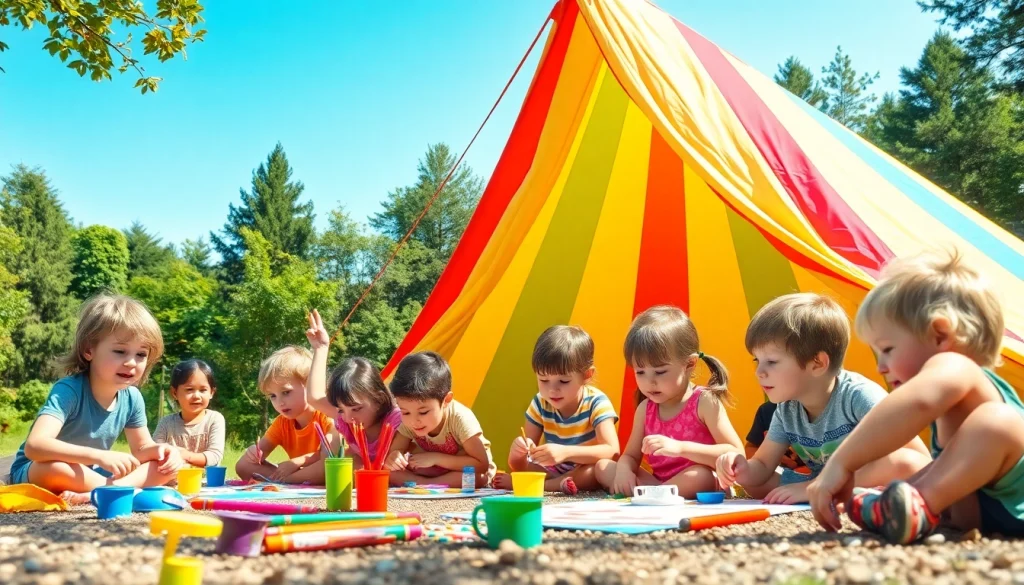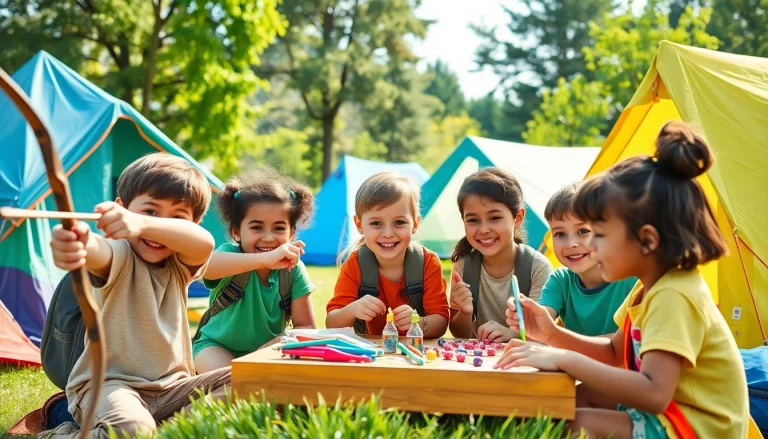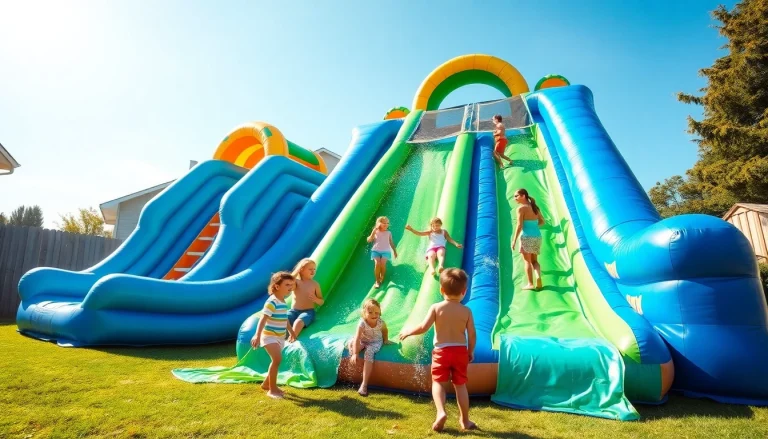
Understanding the Appeal of Holiday Camps
During school breaks, many parents find it challenging to keep their kids engaged and entertained. Holiday camps present an exciting solution, offering a structured environment filled with diverse activities that promote creativity, social skills, and physical well-being. These camps have evolved far beyond the traditional notion of summer programs; they now cater to various interests and age groups, ensuring that every child can find a suitable camp experience.
What are Holiday Camps?
Holiday camps are supervised programs designed for children and adolescents during school vacation periods. They offer a mix of fun and educational activities, providing an environment conducive to personal growth and socialization. Often organized by community centers, schools, or specialized organizations, these camps can vary widely in terms of location, duration, and themes, making them accessible to just about everyone. From arts to outdoor sports, holiday camps cater to a wide range of interests, providing children with memorable experiences that often extend beyond the classroom.
Benefits of Attending Holiday Camps
There are numerous advantages to enrolling children in holiday camps. Among these are:
- Social Development: Camps allow children to meet new friends, enhancing their social skills.
- Physical Activity: Many holiday camps incorporate sports and outdoor activities, promoting a healthy lifestyle.
- Skill Development: From crafting to team-building exercises, camps provide opportunities for children to learn new skills.
- Independence: Being away from home for a few days builds self-reliance in children.
Types of Holiday Camps Available
Holiday camps come in various formats, including:
- Day Camps: Typically last throughout the day, allowing children to return home in the evening. They usually focus on activities like arts, sports, and games.
- Residential Camps: These involve overnight stays and tend to offer a wider variety of extracurricular activities, including hiking and team-building exercises.
- Themed Camps: Tailored to specific interests, such as STEM, music, or drama, these camps provide targeted learning experiences.
- Adventure Camps: Focus on outdoor activities such as rock climbing, kayaking, and hiking, promoting physical challenges and teamwork.
Choosing the Right Holiday Camp
With so many options available, selecting the appropriate holiday camp for your child can be daunting. Here are some points to consider to make the best choice.
Factors to Consider
When evaluating holiday camps, consider the following:
- Age Appropriateness: Ensure that the camp is designed for your child’s age group. Camps often customize activities to be age-appropriate.
- Location: Choose a camp that is conveniently located. Sometimes, local options can provide unique community experiences.
- Reputation: Research camps thoroughly by checking reviews, visiting websites, and speaking to other parents.
- Staff Qualifications: Verify the qualifications and experience of camp counselors and instructors.
Assessing Camp Activities and Programs
Understanding the programs offered by various camps is critical. Look for camps that align with your child’s interests. Some things to consider include:
- Diversity of Activities: Ensure the program offers a good balance of physical, creative, and educational activities.
- Skill Development: Some camps have a focus on developing specific skills, which can give children a sense of achievement.
- Group Size: Smaller groups often allow for more individualized attention and engagement.
Location and Safety Considerations
Safety is paramount when selecting a holiday camp. Inquire about camp safety protocols, emergency procedures, and child-to-staff ratios. Additionally, consider the location in terms of accessibility and whether the environment feels safe and welcoming.
Holiday Camp Activities to Look For
Different camps offer various activities, catering to a broad audience. Here are some great activities you should look for when considering a holiday camp.
Creative Arts and Crafts
Creative expression is an essential aspect of child development. Many holiday camps include arts and crafts in their programming. From painting and sculpting to jewelry making and photography, these activities encourage imaginative thinking and fine motor skills. They not only provide a creative outlet but also allow kids to take home something tangible they’ve created.
Outdoor Adventures and Sports
Physical activity is crucial for kids’ health and well-being. Look for camps that offer outdoor adventures, such as hiking, swimming, team sports, and nature exploration. Adventurous activities can enhance a child’s self-esteem and physical fitness while encouraging teamwork and perseverance.
STEM-Related Learning Opportunities
As the demand for technology and science skills grows, camps emphasizing STEM (Science, Technology, Engineering, and Mathematics) education are becoming increasingly popular. Programs may include robotics, science experiments, coding, and engineering challenges, ensuring that kids have fun while learning essential skills for the future.
What Parents Should Know Before Enrolling
Before enrolling your child, it’s important to gather as much information as possible regarding the camp operations.
Cost and Financial Planning
Camp costs can vary significantly based on location, duration, and activities. It’s essential to budget for the expenses and consider hidden fees such as activity supplies or transportation. Always inquire about available financial assistance or scholarships that the camp may offer.
Preparing Kids for Camp
Preparation is key to ensuring a successful camp experience. Here are steps to take:
- Talk to your child about what to expect.
- Involve them in packing their bags, emphasizing the importance of bringing appropriate clothing and personal items.
- Teach them about independence and the importance of making friends.
Safety Protocols and Regulations
Check whether the camp follows local and national safety regulations. This includes having certified staff in first aid and CPR, emergency contact plans, and protocols for handling various situations. Transparent communication with camp administration will provide peace of mind.
How to Make the Most Out of Holiday Camps
Once your child is registered, there are additional steps you can take to maximize their camp experience.
Integrating Camp Experiences with Home Life
Encouraging your child to share their camp experiences can enrich the benefits. Discussing daily activities at dinner can keep the conversations alive and may help the child reflect on what they’ve learned and experienced.
Encouraging Friendships and Social Skills
Help your child develop friendships by encouraging them to reach out to other campers, perhaps scheduling playdates or group projects. You can also guide them in developing soft skills like communication and teamwork.
Following Up After Camp: Keeping the Adventure Alive
Once camp ends, maintain support for your child’s growth and learning. Encourage participation in similar activities or community programs that offer them the same stimulation and social engagement they experienced at camp. Sharing scrapbooks or projects they completed can also reignite enthusiasm for the adventures and lessons they gained.
Conclusion
Holiday camps offer a unique opportunity for children to learn, grow, and make lasting memories. From fostering friendships to exploring new interests, these camps serve as an enriching experience that extends beyond mere entertainment. By choosing the right camp and actively engaging with your child’s experience, you can ensure that they benefit fully from everything a holiday camp has to offer.





